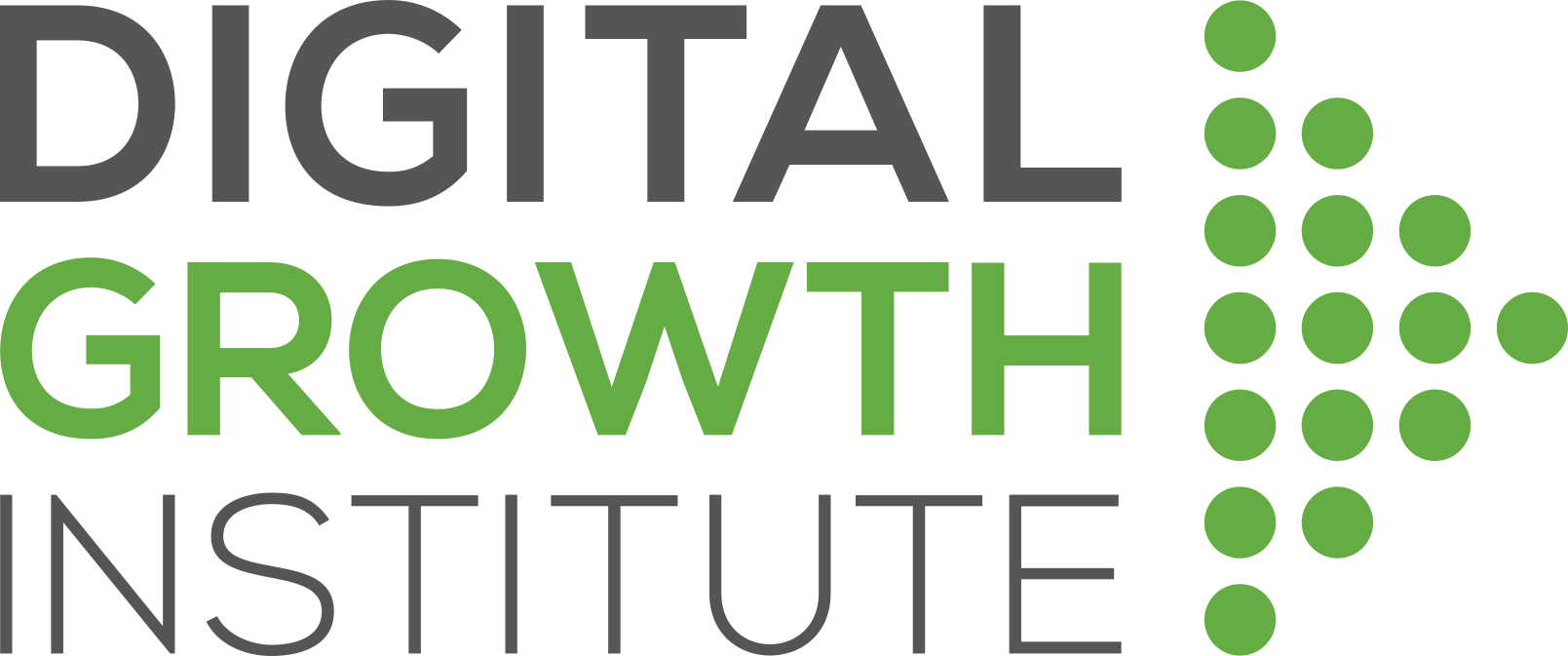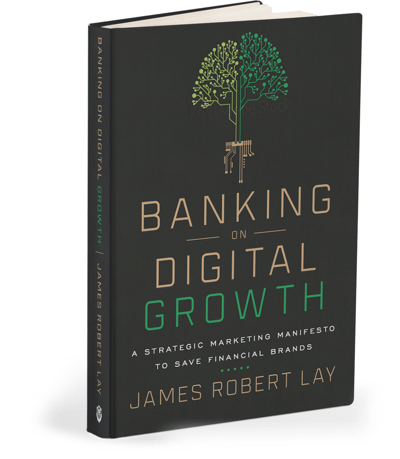“Define your habits. What is a good habit you want to repeat? What is a bad habit you want to stop?” -Jedidiah Collins
Bad financial habits are painfully common. Even Wall Street wizards and business billionaires would probably admit to making at least a few major financial mistakes.
The secret to steadily building wealth is to shift your mindset, grow your knowledge, and adjust your habits. This is the concept behind Your Money Vehicle: How to Begin Driving to Financial Freedom! The book’s author, Jedidiah “Jed” Collins, is the founder and CEO of Money Vehicle and a strong proponent of conquering financial illiteracy.
He shares his tips and insights with James Robert Lay, founder of the Digital Growth Institute, author of the book Banking on Digital Growth, and host of the Banking on Digital Growth podcast. Together, they ask the question, “How are your money habits?”
Facing Up to Financial Illiteracy
Jed is on a mission to empower people, especially students and young professionals, who feel apprehensive about money management. His mission has its roots in football.
“I was playing in the NFL,” he says, “And I say playing - I was getting cut a lot in the NFL. And getting cut in the NFL does something for you. You die before you get to live.”
The experience of being cut gave him an appreciation for the fact that football wasn’t going to last forever and he needed to maximize his good fortune. He reflected on spending his rookie paychecks somewhat recklessly and never learning how to handle money wisely, despite pursuing a business degree.
Jed woke up to the fact that he was, in his own words, “financially illiterate.”
He had a bad relationship with money and was worried about what would happen after his NFL days inevitably ended.
Around this time, Jed encountered the book Rich Dad Poor Dad and experienced a philosophical transformation. He realized that poor financial planning would not only impact him, but also his children and their future generations.
“I started to understand what it was to make money go to work for you and how to really make money, not necessarily the destination, but a vehicle to get you to that destination,” Jed says. Instead of making money to spend money, he decided to start making money to build wealth for the future.
What is a Money Vehicle?
The “money vehicle” from the title of Jed’s book is a symbol of your personal financial momentum. It’s about taking ownership of your money vehicle, grabbing the keys, getting into the driver’s seat, and realizing your financial journey is 100% in your own hands.
Jed wrote his book because he felt that his driving passion was to help everyday people, not just high-income earners. He wanted to improve the lives and long-term outlooks of students and young professionals with decades of financial decisions ahead of them.
He also wanted to bring plain language to a topic where the lingo typically confuses people. Historically, only the upper class had access to advanced financial management and planning.
“So the lower class and the middle class,” Jed says, “who were never going to be introduced to this terminology and this language, would always feel like outsiders and left out. The last 10 to 15 years have allowed us to see technological advances and communication advances, but it still is not penetrating the socioeconomic barriers.”
The Democratization and Decentralization of Knowledge
James Robert shared a McKinsey study called On the Cusp of Change, North American Wealth Management in 2030. The study’s authors look back at history, summarize today’s trends, then attempt to predict the financial trends of the future.
One of the main conclusions of the study is that knowledge is becoming more decentralized due to better, faster communication methods. When things become digitized, they tend to become democratized and even demonetized. James Robert explains that this naturally prioritizes people over money, which is probably a good thing.
“I think the biggest misconception now is that spending less than you make is still enough,” Jed says. “Spending less than you make was our parents' form of financial literacy.”
“Today,” he says, “we must become investors.” This is an intimidating concept for most people with minimal financial education, but it’s easier to accomplish with the widespread availability of technology, information, and books like Jed’s.
James Robert explains, “And so what you've done is you've removed the friction. You've simplified it.” He likens it to reducing the friction on a small plane and giving it the lift it needs to rise from the ground.
Jed advises starting a journal to record your experiences, including how they’re impacting you financially. If you have financial goals, write them down. Later, it will be enormously helpful to see your progress, including your missteps.
James Robert keeps a journal because it helps him think more creatively about the future.
“When you take thought out of your mind and then you put that down on paper, that is the initial beginning of creation,” he says. “And if we gave people the space and the time to simply just think and write about where they want to be 3 years, 10 years, 20 years from now…It could truly be transformative to an entire generation who just has never done this.”
Common Obstacles to Financial Stability
Jed shares some of the most common obstacles and pain points people experience when trying to improve their financial situations. First is a complete lack of introduction and access to the entire subject of investment. Perhaps nobody in their family has ever discussed it with them.
Another hurdle is distrust in the system. If someone doesn’t believe the system is designed to help them, and may even feel that it’s designed to hurt them, they feel no motivation to get more involved with it.
Related Content: Fighting Off Financial Stress with the One-Number Budget
The idea of budgeting is also distasteful to plenty of people. Budgeting feels disappointing, as if it’s only for people who don’t make enough money to stop worrying about it all the time.
Jed helps people shift their mindsets by creating a framework to handle money before it ever arrives in their paychecks or bank accounts. This inspires a sense of control and autonomy as the money flows in.
Mindset is often a major roadblock to starting the process, especially with young people like the high school students Jed frequently coaches. He helps them shift their mindsets by asking simple questions about their habits.
- What is a good habit you want to repeat?
- What is a bad habit you want to stop?
- What is something in a year’s time you could bring to fruition if you started today?
- How could we change some of your habits to bring this goal to reality?
Jed helps them set one-month and one-year goals, then he gives them a one-week goal of just learning to change their habits little by little. He emphasizes the power of habits to shape your long-term financial picture, for better or worse.
Tips for Increasing Your Financial Confidence
Maybe you work at a bank, credit union, fintech, or another type of financial organization, yet you don’t know how to help your customers be more financially successful.
You might even be struggling with it yourself!
So here are Jed's tips for someone who wants to be a force for good, in a financial sense.
- Start by accepting the personal and intimate nature of dealing with money. Remain open-minded.
- Build clarity and simplicity with the first steps. Don’t get too deep into the lingo and advanced methods until the basics are covered. Take a beginner’s mindset.
- Create a singular, ultimate goal and work backward from there.
- Prioritize financial choices to keep the focus on the ultimate goal.
In addition to the previously mentioned book Rich Dad Poor Dad and Jed’s Your Money Vehicle, several other books may help people struggling to build new habits.
- Tiny Habits by BJ Fogg
- Atomic Habits by James Clear
- Be Your Future Self Now by Benjamin Hardy
- Think Again by Adam Grant
“If you do one small thing today to increase your personal wealth,” Jed says, “take a look at chapter 10 of his book about Roth accounts and set one up. Growing your tax-free investments becomes a huge advantage over 10, 20, or 30 years. Accomplishing this single financial feat often gives people the confidence they need to build additional wealth for decades to come.”
Connect with Jed on social media by searching for his handle, Fullback of Finance, or email him at jed@yourmoneyvehicle.com. To learn more about financial transformation, contact James Robert Lay at the Digital Growth Institute or listen to the Banking on Digital Growth podcast.
This article was originally published on March 17, 2023. All content © 2024 by Digital Growth Institute and may not be reproduced by any means without permission.


